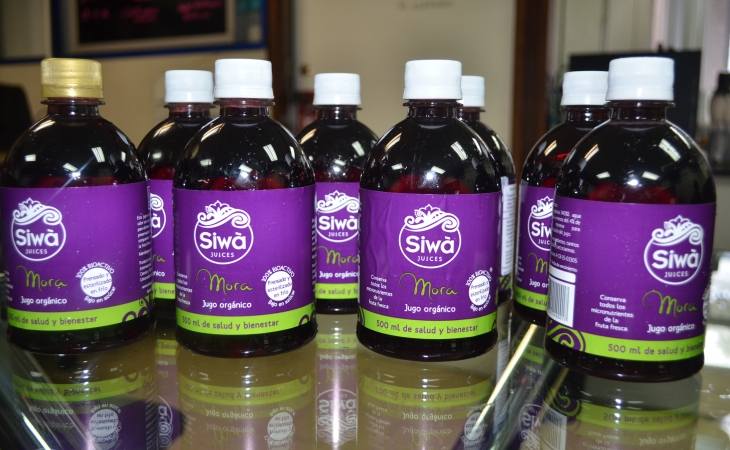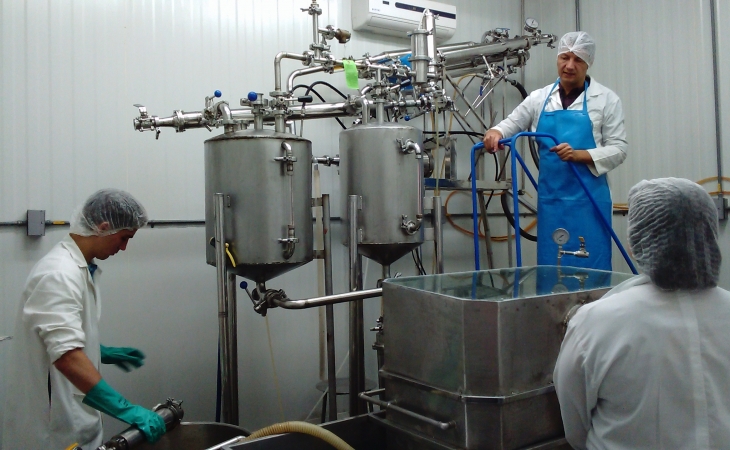The patent requested by the University of Costa Rica (UCR) in 2012 to protect a method that allows obtaining healthy blackberry extracts was finally approved in Colombia: one of several countries where it will remain active.

SIWÁ extract acts against hormone-dependent cancer (prostate and breast). At the same time, it is associated with reducing triglyceride levels and a lower incidence of cardiovascular diseases.
The registration process was carried out by the Knowledge Management and Transfer Unit for Innovation (PROINNOVA), which initiated the procedures to control the commercial exploitation of work developed by specialists from the National Center for Science and Technology (CITA) and the French Center of Agricultural Research for Development (CIRAD)
The idea is to protect the knowledge generated by both institutions, in order to better impact all the sectors involved: consumers, scientists, business people, and producers.
For one of the researchers of the project, Fabrice Vaillant, this will be a key point, mainly because the compound “is reported with positive effects on health”, something that can be promoted through a coordinate development.
According to Vaillant, the extract acts “essentially against hormone-dependent cancer (prostate and breast),” while being associated with “low triglyceride levels and lower incidence of cardiovascular diseases.”
“Obtaining the extract is technically feasible and can be easily implemented at an industrial level,” Vaillant explained. “The fact of having a patent allows us to look for industrialists who could implement the process and produce the extract from their seed waste,” he added.
The patent process is the last stage faced by researchers Ana Mercedes Pérez-Carvajal, Óscar Gerardo Acosta-Montoya, Miguel Dornier, and Fabrice Vaillant, who had to develop their work for almost ten years to reach this point.
“We already knew that there was a special compound of the blackberry called 'ellagitannin'. Additionally, we knew that this compound is tied to blackberry seeds and we knew that companies that make juice from it tend to discard those components,” said Vaillant.
“Then, we started to carry out research to detach the compound from the seed and we thought of using membrane technology to concentrate it,” he explained.
Precisely, this procedure was the one that the University protected, with the goal of generating an impact in the food and pharmacological markets.
“At first, it was very difficult to imagine concentrating this molecule, which is relatively small, but it was easier than we thought and we managed to do it using a nanofiltration system or low ultrafiltration,” Vaillant said.
“This is what was patented because the process is relatively simple, the equipment exists commercially and has industrial applications to obtain concentrates of 'ellagitannins',” stressed the scientist.
According to the innovation manager at PROINNOVA, Engineer Manuel Flores-Morales, the protection process will allow the University to generate more recognition, ensure that "knowledge is used, and that its benefits reach the population.”
“From the day the patent application is made, there is some form of protection, in the sense that if the patent is actually granted, the owner or holder can enter into a negotiation process or lawsuit if another party is profiting from the invention,” explained the official.
In addition, as Vaillant explained, the patent “is active in blackberry-producing countries such as Mexico, Colombia and Costa Rica; as well as in those that could buy the 'ellagitannins' concentrates like the United States.”
In this regard, the researcher said that the process will seek to reward “the efforts of many students and professors who contributed something to the research” through the collection of royalties to finance new projects, as well as generating an impact on the agroindustrial sector so that it learns “the value of what today is considered waste (seeds).”
For Vaillant, the extract “could even be bought by other industries that produce functional foods,” which could “use it as an ingredient for their products and impact the health of more consumers.”

The National Center for Science and Technology (CITA-UCR) carries out the manufacture and commercialization of the blackberry extract.